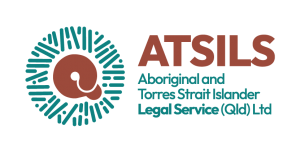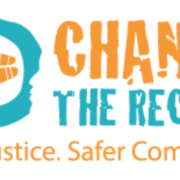This series of videos explain the court process for domestic and family violence to provide you with the information you need to take part in the legal process.
If you are applying or responding to a domestic violence order, there is information here for you.
Domestic Violence Orders are part of a strategy to protect the safety of all members of our community and to stop the violence.
The webpage features information on how the Murri Court process works along with information on the history of the court. Intended for use by stakeholders, Community Justice Groups, defendants, and the general public, the Murri Court webpage is the first of the Courts Innovation Program’s webpages to be revamped as DJAG continue our effort to keep our programs accessible to the community.
The webpage now provides links to a variety of documents including:
· Murri Court forms and templates including payment claim forms
· Murri Court brochure, poster, and factsheets
· Murri Court videos
· Murri Court practice direction and important legislation
· Murri Court feedback report
· Murri Court evaluation report
The Murri Court Website can be found here:
http://www.courts.qld.gov.au/courts/courts-innovation-programs/murri-court
What is Murri Court?
The Change the Record (CTR) Coalition has today welcomed the release of a major report by the Senate Finance and Public Administration Reference Committee into ‘Aboriginal and Torres Strait Islander experience of law enforcement and justice services’. This report makes a number of critical recommendations aimed at improving justice outcomes for Aboriginal and Torres Strait Islander people, including adequate support for legal assistance services.
Aboriginal and Torres Strait Islander people are currently 13 times more likely to be imprisoned than non-Indigenous Australians. At the same time Aboriginal and Torres Strait Islander women are 34 times more likely to be hospitalised due to family violence than non-Indigenous women. These issues are compounded by a number of significant barriers to accessing legal assistance services and the lack of a holistic, coordinated whole-of-government approach aimed at addressing the underlying drivers of imprisonment and violence rates.
When: Monday, 18 April 2016
Where: Aboriginal & Torres Strait Islander Community Health Service (ATSICHS) 55 Annerley Road, Woolloongabba 4102
Time: 9am to 12pm
Attend this session if you answer YES to any of the following:
- You believe your wages and savings were controlled under the ‘Protection Acts’
- You received a reparations payment under the 2002 Indigenous Wages Savings Reparations (IWSR)
process - You did NOT apply under the 2002 IWSR process but want to be apply under this Scheme
- You were found ineligible under the previous IWSR process and you were born between 1 January
1957 and 31 December 1959 - You wish apply on behalf of a deceased family member
- You are assisting a family member to complete an application form
- You would like more information about the current reparations process
If you wish to apply or enquire about your application you must bring documentation that can prove yourdate of birth such as a driver’s licence, birth certificate, health care card or pension card.
More information about the Reparations Scheme is available on freecall
1800 619 505 visit www.qld.gov.au/reparations
Download: Applications Day Invitation
View: Reparations Scheme Eligibility Payments Information Sheet
Change the Record Coalition (CTR)
 “The ‘Close the Gap Campaign’s 2016 Progress and Priorities Report’ released today calls on government to develop justice targets to reduce the high rates of imprisonment and violence being experienced by Aboriginal and Torres Strait Islander communities.”
“The ‘Close the Gap Campaign’s 2016 Progress and Priorities Report’ released today calls on government to develop justice targets to reduce the high rates of imprisonment and violence being experienced by Aboriginal and Torres Strait Islander communities.”
Change the Record Coalition Co-Chair Shane Duffy said, “These statistics are a sad indictment on our nation. The over-representation of our peoples in the criminal justice system, and high rates of violence being experienced, is both cause and effect for the poor state of health, education and employment outcomes of so many of our families and communities”.
“It is long past time for measurable justice targets to be adopted as part of the COAG Closing the Gap Strategy, and we welcome this renewed call for action from the Close the Gap Campaign. The safer communities ‘building block’ remains the only area without targets attached” said Mr Duffy.
https://changetherecord.org.au/blog/news/justice-targets-critical-to-close-the-gap
The Change the Record Coalition today welcomed Prime Minister Turnbull’s announcement of $100 million of funding targeted at addressing family and domestic violence, but expressed disappointment that the package fails to prioritise essential legal services for Aboriginal and Torres Strait Islander women’s safety.
The 13 of September marks the anniversary of the adoption by the United Nations of the Declaration on the Rights of Indigenous Peoples which affirms the minimum standards for the survival, dignity, security and well-being of Indigenous peoples worldwide and enshrines Indigenous peoples’ right to be different.
The Declaration was adopted by the General Assembly of the United Nations in September 2007. This was the culmination of more than 20 years of negotiation between the Indigenous peoples and governments of the world. The Australian Government announced its support for the Declaration in 2009.
The Declaration is particularly significant because Indigenous peoples, including Aboriginal and Torres Strait Islander peoples, were involved in its drafting.
“The Declaration is the most comprehensive tool we have available to advance and protect the rights of Aboriginal and Torres Strait Islander peoples. I use the Declaration as my guide as Social Justice Commissioner. It is the foundation upon which my agenda has been built.”
Check these great resources for the Declaration from the Australian Human Rights Commission:
https://declaration.humanrights.gov.au/
#HumanRights #Indigenous




